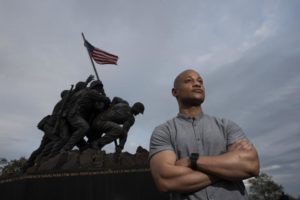Happy Victory Day!
Happy Victory Day! You may recall that last week, we told you about the disturbing rise of fascism in South Dakota (as a microcosm of America), tempered with optimism inspired by some of our past victories over colonial oppressors. We also highlighted some of our brave women warriors who made a difference in the battles of the Rosebud and Greasy Grass (as we call Little Big Horn).
Today, June 25, is the 148th anniversary of that watershed moment when Indigenous forces led by, among others, Lakota warriors Sitting Bull and Crazy Horse finally put an end to George Armstrong Custer’s reign of terror. Despite all the mythologizing within colonial culture of the man who led the U.S. 7th Cavalry during the Indian Wars of the mid to late 1800s, make no mistake: this is a day to celebrate! This is a day to recognize the immense bravery, tactical brilliance, and dedication of our ancestors.
I somehow doubt Custer really went down as he stood atop a moving horse, but it just goes to show how the colonizing culture will mythologize a loss and a loser. Lithograph by Henry Steinegger.
Today’s linked video from the Infographics Show is an entertaining retrospective on the life of Custer (who admittedly made a name for himself — if rather luckily — as a Union soldier during the Civil War before becoming our nemesis on the Great Plains), the numerous reasons for his defeat, and circumstances which precipitated the Battle of Greasy Grass. I find it heartening that in 2024, we don’t have to search far to find a telling that contains so much of the correct context.
Much is also missing. We hear of buffalo slaughter, but not the extent. We hear of a broken treaty, but not the many others. We hear that Native People were fighting for our way of life, but not that all of these things were inextricably linked. The buffalo, of course, were central to our way of life — and their near extermination combined with the U.S. government’s goal to sequester us into death camps provided not just motivation, but the necessity to fight to survive.
Speaking of treaties, I and some of our team spent some time this past weekend at this year’s 50th anniversary International Indian Treaty Council gathering on Standing Rock. Today we are still fighting for the recognition of treaty law and our right to live with respect and in peace on our own homelands. We’ll have much more to say on that very soon. In the meantime, I hope you’ll join me in giving thanks to our ancestors for their sacrifice, leadership, and enduring presence. Unlike Custer, they stood for something beautiful and profound.
Wopila tanka — and my thanks to you for helping us win new victories!
Chase Iron Eyes
Director and Lead Counsel
Lakota People’s Law Project




